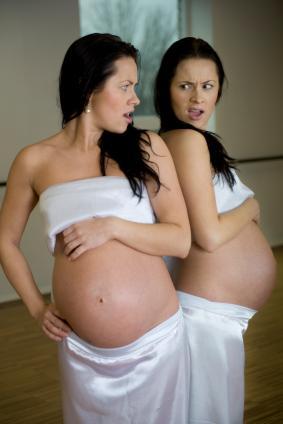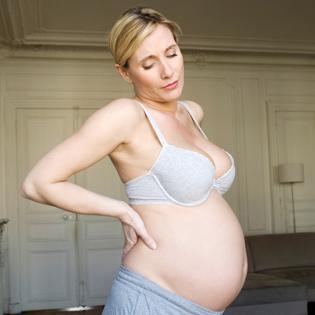With all the hormonal changes going on, it is hardly surprising that you will notice changes in your body during pregnancy, apart from your growing bump.
Pregnancy demands your body to be perfect to support the growth and development of a baby. The process of growing a baby is hard on your body so you should expect to be affected by variations in your hormone levels as well as the baby’s physical growth.
Some women notice changes in their bodies gradually throughout the pregnancy while others experience them at the beginning or end of their pregnancy. Despite the discomforts associated with pregnancy, it is not uncommon for women to feel healthier during pregnancy than during other times of their lives. Read on to learn major body changes during pregnancy you will likely to experience and how you can deal with certain discomfort. You will also learn what changes you will experience in each trimester.

Body Changes During Pregnancy
Body Changes During Pregnancy:
Body Aches
Especially on the lower back, when the uterus size increases. The pain may move to the leg, knee and the foot as you move into the pregnancy. General body pain will resolve by itself by enough rest.
Breast Changes
Throughout the pregnancy, most women will experience an increase in the fullness and size of their breasts. When they get farther along, the hormones will lead to even larger increases in size for breastfeeding which can result in tender, heavy or full breasts. Some women will leak colostrum (the first milk) during the third trimester.
Bowel Movements
Constipation is also one of the common body changes in pregnancy, especially if you are on iron supplements. The best way to avoid this is by taking iron rich foods and not supplements. Have fruits like banana, apples and veggies like spinach or any greens. They were all made by Mother Nature for our needs. Like they say, mothers always know best.
Hemorrhoids
Some estimates say that nearly 50% of pregnant women develop hemorrhoids. The increase in blood volume can lead to the enlargement of veins. In addition, the expanding uterus and constipation can make hemorrhoids worse. The good news is that they usually improve after giving birth.
Fluid Retention
The body starts retaining more fluids during pregnancy, and may lead to swollen ankles, puffy face and swollen fingers. It gets worse during summers, which is why avoiding sodium (salt) and even sugar is a good starting point. Drink lots of water, because that helps you flush the salt out. Water retention requires the doctor’s attention so make sure you have proper follow ups with your physician.
Heartburn and Indigestion
Heartburn and indigestion are caused by a combination of the larger uterus and hormones. The digestive tract slows down, leading to bloating. Hormones will also relax the part separating the stomach and esophagus, making it easier for acids and food to come back up. Heartburn becomes more common later on during pregnancy due to the baby’s size.

Body Aches During Pregnancy
Hyperactive Bladder
Increased urination during pregnancy is very common. While the baby moves around in the womb the mothers feel the kick over their bladder. Sometimes you will not reach the loo on time! But you will make the trip at least 20 times in a day. Doing pelvic floor exercises is a good way to ensure that you don’t feel over worked. And yes, by all means drink loads of water since it is essential to urinate as you need its power to flush the toxins out of your body.
Itching
Around 20% of women experience itchiness during pregnancy. This usually occurs on the abdomen but can also affect the soles of your feet or palms. This is usually caused by stretching skin and pregnancy hormones and will disappear after delivery.
Morning Sickness
Morning sickness can occur throughout the day and usually happens during the first trimester, slowing down or ending by the second trimester.
Skin Changes
When the body is stretched for such a long period of time, stretch marks are a very common. There are also dark patches around the cheeks, forehead and the nose. Most of these marks will vanish after the pregnancy, but the stretch marks may remain.
